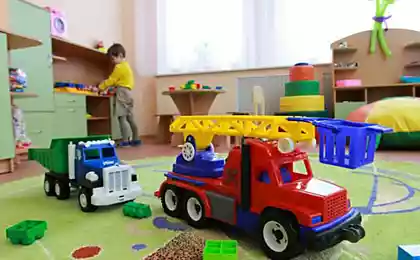1263
Kids know what they want
Some parents believe that the new devices will improve children's intelligence. However, a recent study showed that seven-month children are able to sift too complicated or boring things, focusing only on the information that can learn, writes MedDayly referring to The Times of India.
According to the author surveys Celeste Kidd from the University of Rochester, the process of cognition in children occurs, in fact, on an intuitive level. That is, they organized to find the information with regard to the choice of what is learned well.
If the child is confronted with information that is too easy, he will lose interest in it, because it is of no value in terms of training. This was proved by an experiment in which scientists have tried to draw the attention of 72 children 7-8 months, showing them various items on the screen.
While the child continued to stare at the screen, the picture is not changed. If he looked away (ie lost interest), the experiment was interrupted. For example, children showed a clip with objects that appear because of the boxes. Once the child figured out the scheme, he lost interest.
According to the author surveys Celeste Kidd from the University of Rochester, the process of cognition in children occurs, in fact, on an intuitive level. That is, they organized to find the information with regard to the choice of what is learned well.
If the child is confronted with information that is too easy, he will lose interest in it, because it is of no value in terms of training. This was proved by an experiment in which scientists have tried to draw the attention of 72 children 7-8 months, showing them various items on the screen.
While the child continued to stare at the screen, the picture is not changed. If he looked away (ie lost interest), the experiment was interrupted. For example, children showed a clip with objects that appear because of the boxes. Once the child figured out the scheme, he lost interest.
























